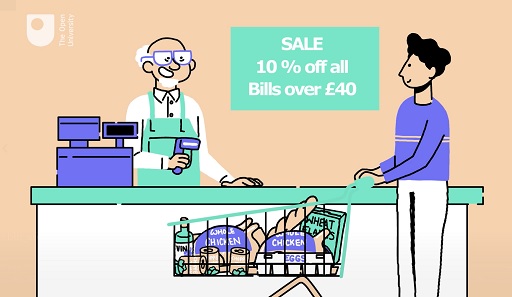Session 1: Working with numbers
Introduction
With an understanding of numbers you have the basic skills you need to deal with much of everyday life. In this session, you will learn about how to use each of the four different mathematical operations and how they apply to real life situations. Then you will encounter fractions and percentages which are incredibly useful when trying to work out the price of an item on special offer. Additionally, you will learn how to use ratio – handy if you are doing any baking – and how to work with formulas.
Throughout the course there will be various activities for you to complete in order to check your skills. All activities come with answers and show suggested working. It is important to know that there are often many ways of working out the same calculation. If your working is different to that shown but you arrive at the same answer, that’s perfectly fine.
By the end of this session you will be able to:
- use the four operations to solve problems in context
- understand rounding and look at different ways of doing this
- solve equations involving negative numbers
- use fractions, decimals and percentages and convert between them
- solve different types of ratio problems
- use inverse operations to check your calculations.

Transcript
[MUSIC PLAYING]
Even for something as basic as food shopping, developing your knowledge of numbers can be a real benefit, especially if you're looking for a bargain. Like, learning when to round a number up or down to help work out a rough estimate of what you need to buy. And understanding things like percentages can help you track exactly what bargains there are on offer. And when there is a chance to save money.
Even for something as basic as food shopping, developing your knowledge of numbers can be a real benefit, especially if you're looking for a bargain. Like, learning when to round a number up or down to help work out a rough estimate of what you need to buy. And understanding things like percentages can help you track exactly what bargains there are on offer. And when there is a chance to save money.
If you use a credit card, understanding interest rates will help you know how much it costs to use it. And when you come to cooking, getting to grips with formulas will help you when working out a cooking time. Or calculating how much money you have available, in case of an emergency.
